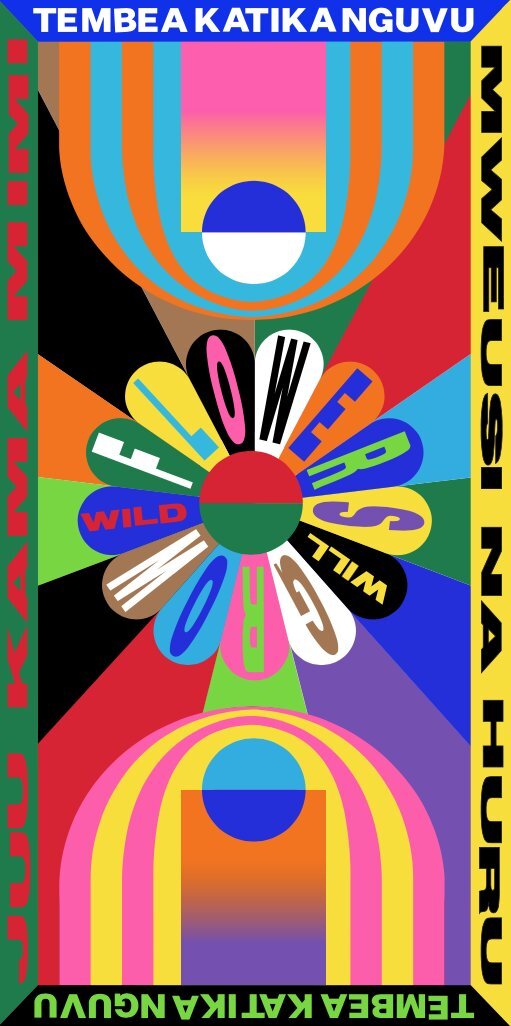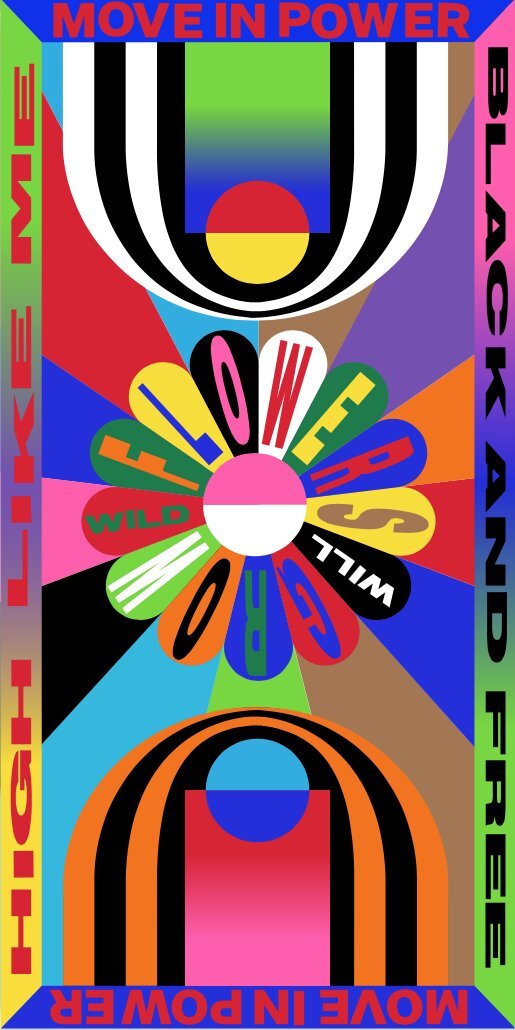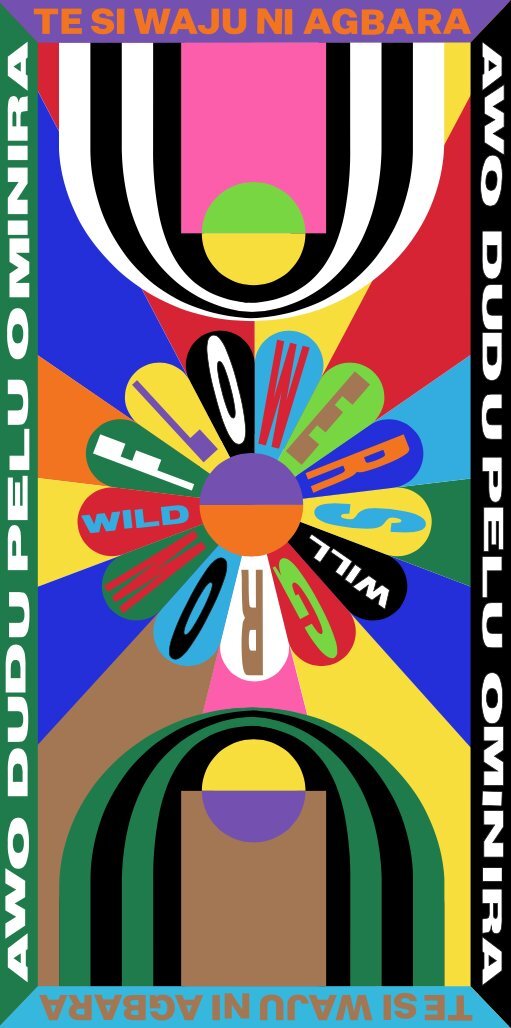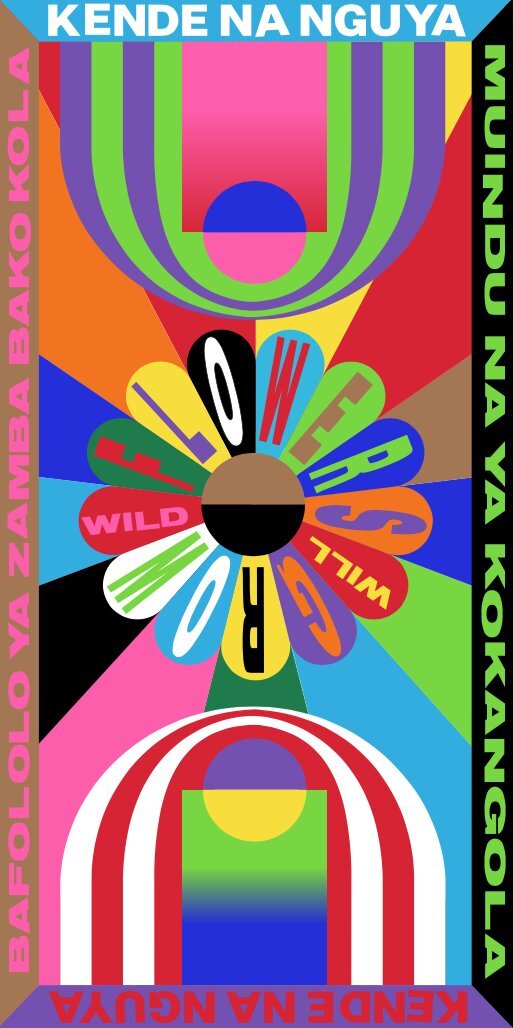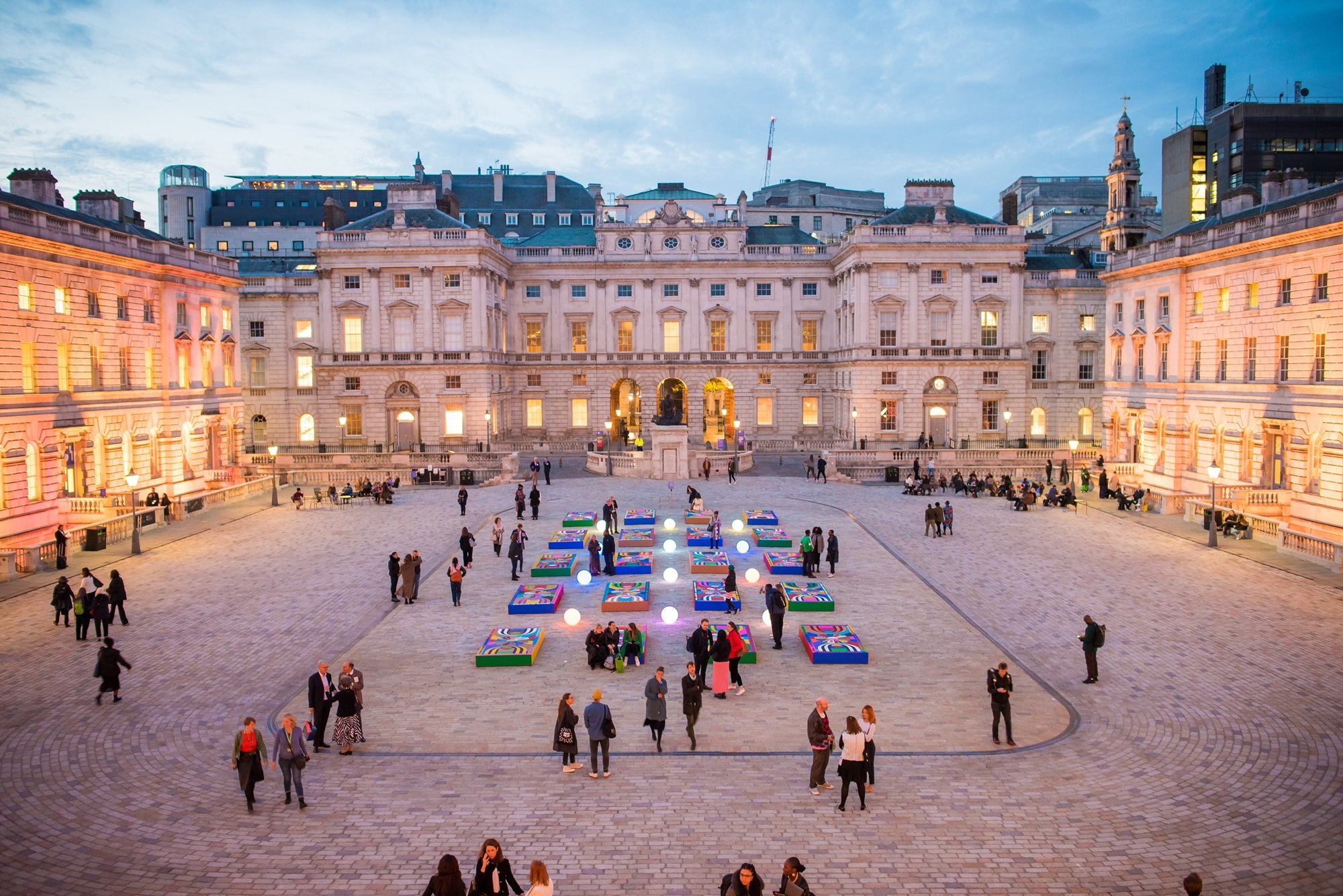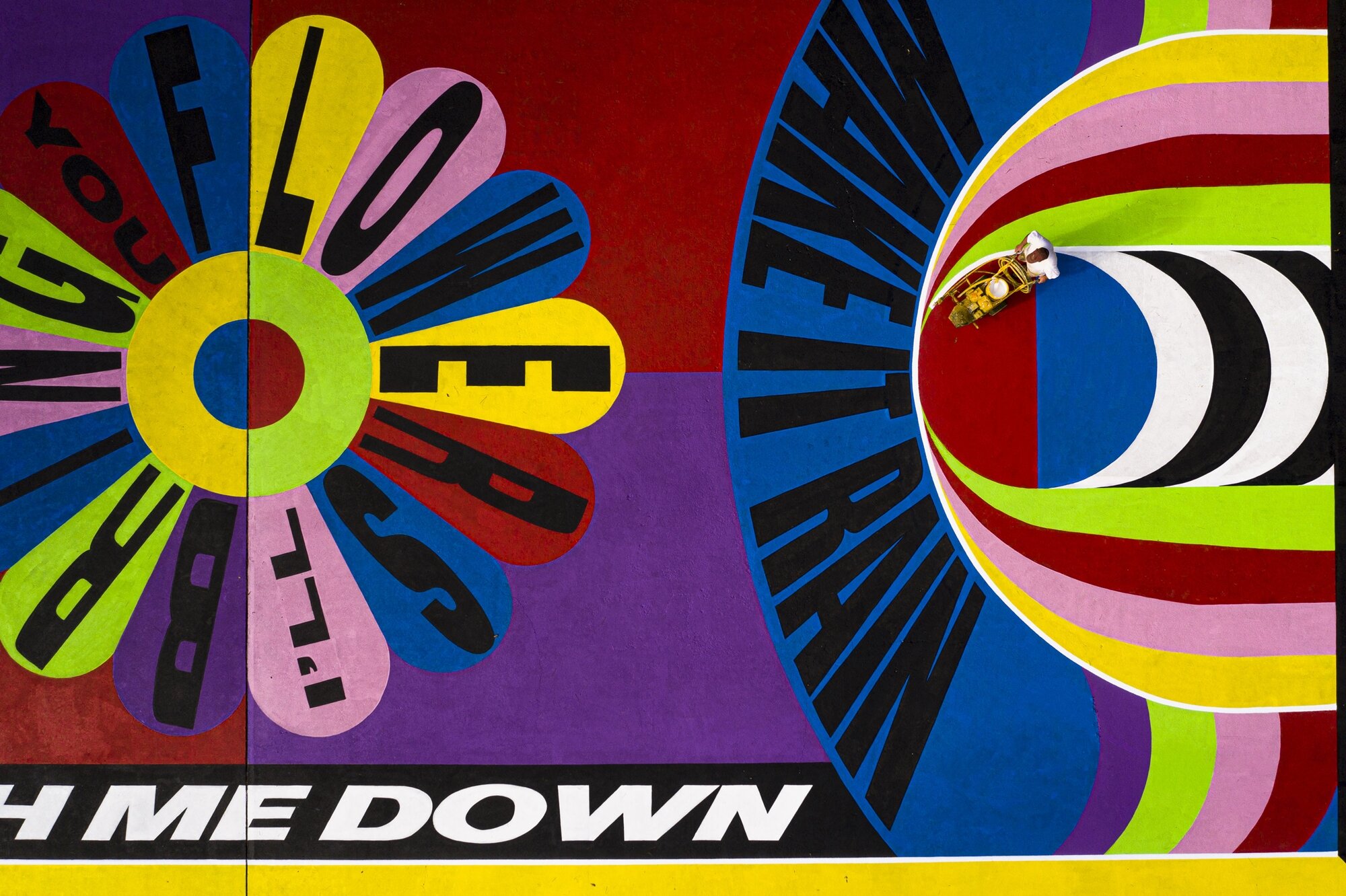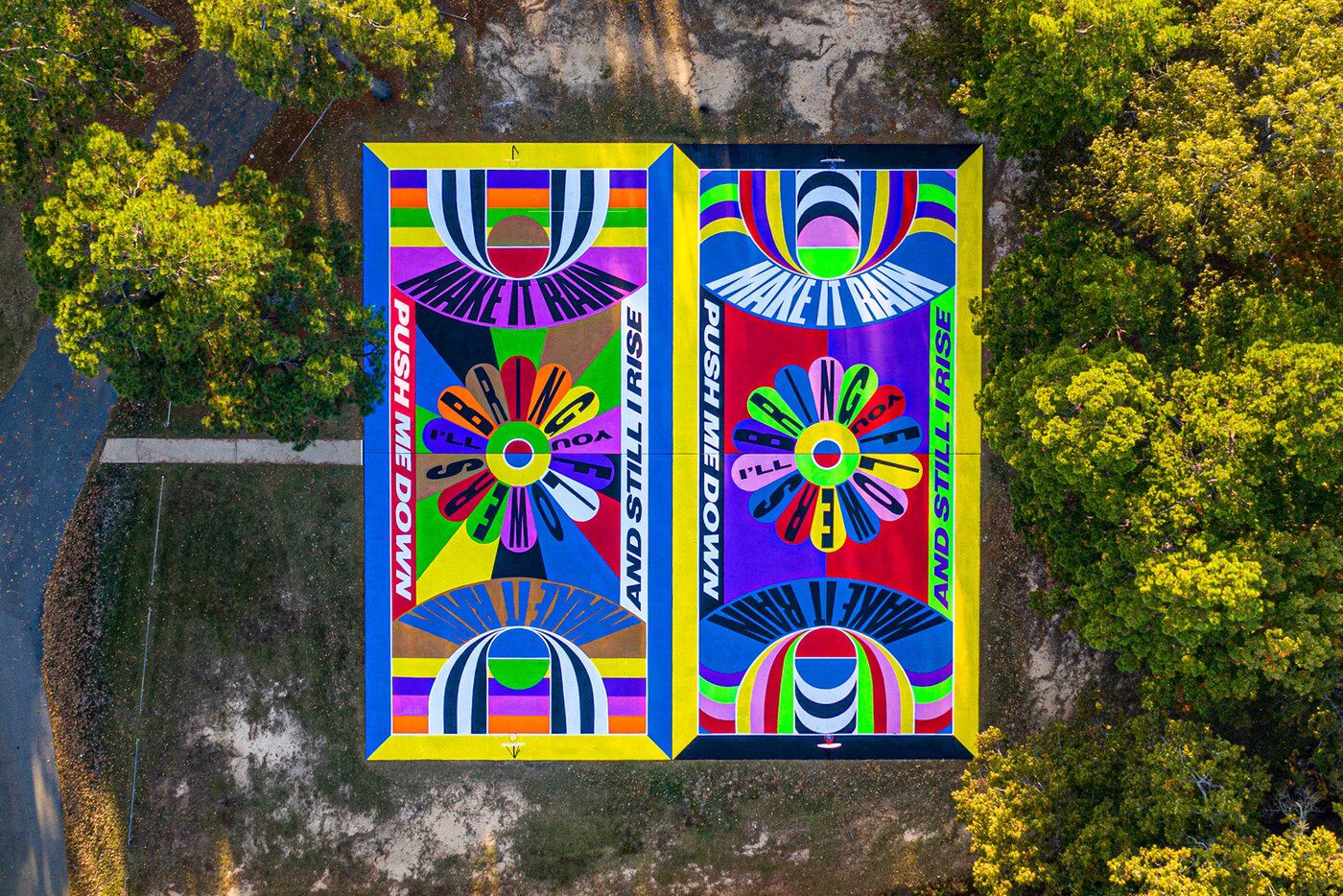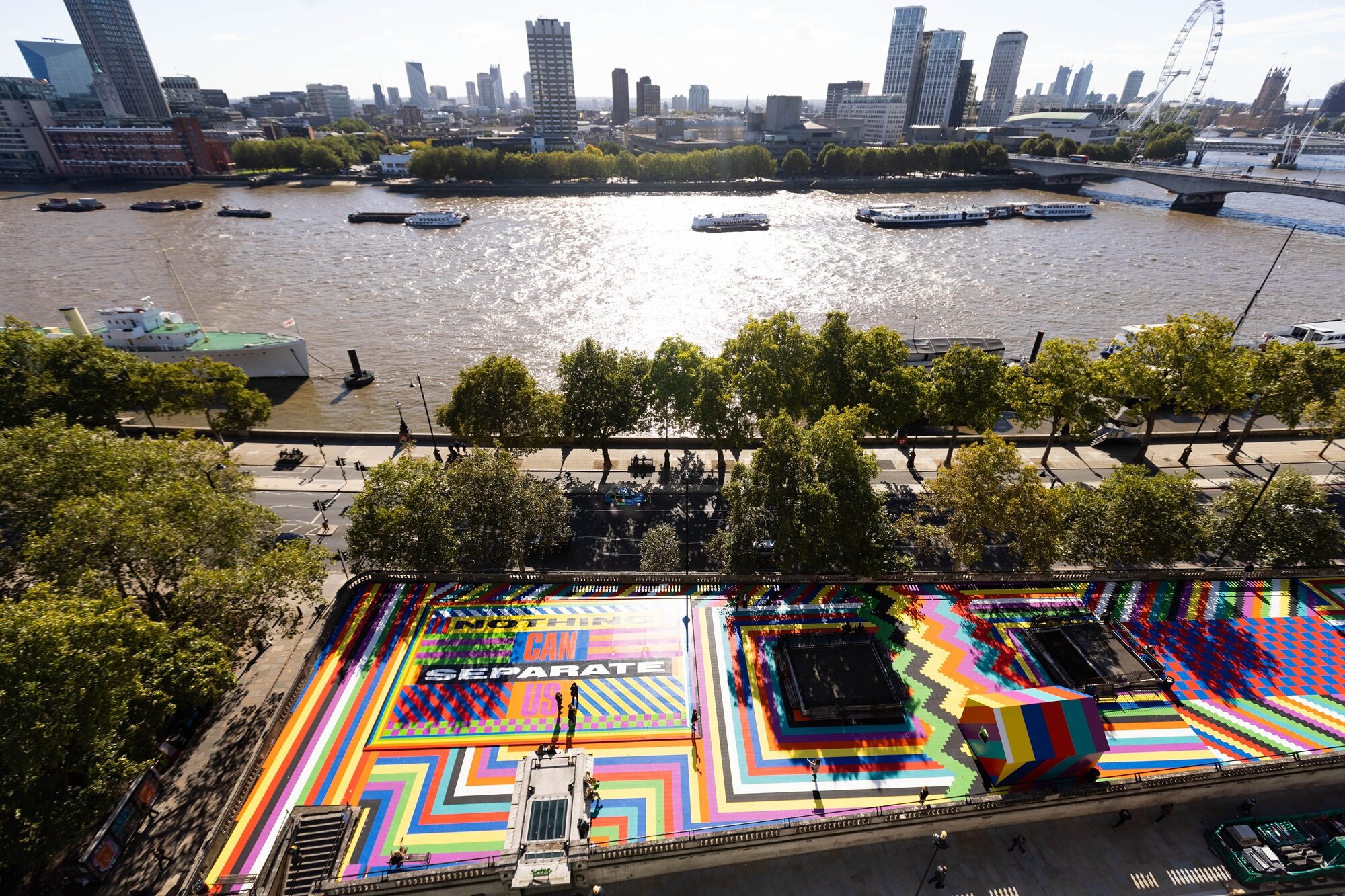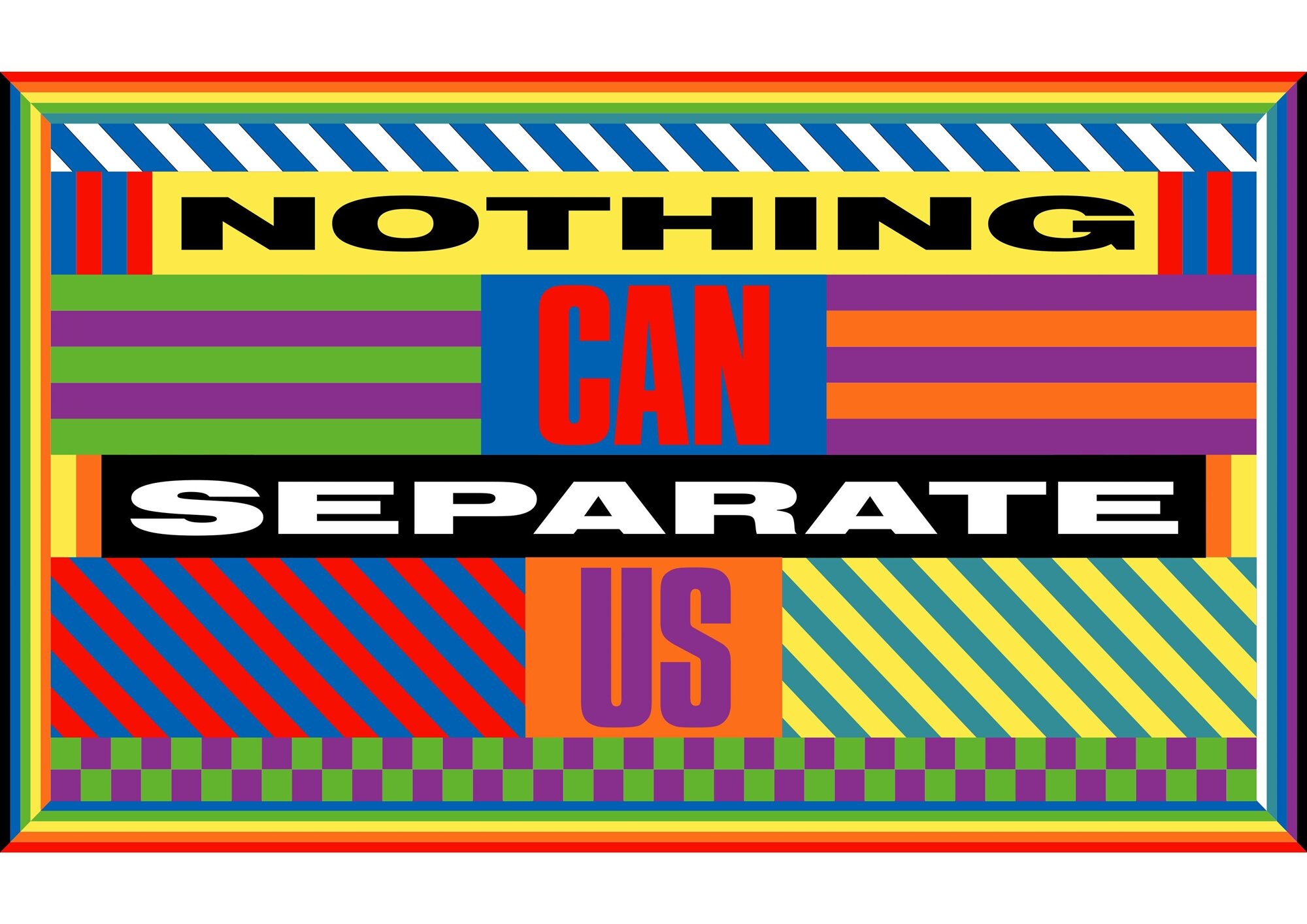Nataal speaks to the artist about her meditations in search of African utopia at 1-54 London 2021
Lakwena Maciver was chosen for this year's prestigious Courtyard Sculpture Commission at 1-54 London with the support of Vigo Gallery. On view now, 20 of her large-scale basketball paintings take over Somerset House’s central outdoor space while 12 of her hand-stitched flags that boldly state ‘Nothing Can Separate Us’ fill the West Wing corridor inside the contemporary African art fair.
The London-based artist enlists bright colours, striking shapes and valiant texts in her largescale works, which have been exhibited widely including at the Tate Britain and Southbank Centre in London and the Bowery Wall in NYC. Her practice resonated deeply with the public during the severe realities of the global pandemic due to their vibrancy and sentiments of hope and resilience. However, Maciver’s creative inspirations stem from much earlier personal experiences, which in turn, connects to wider global discourses surrounding escapism, utopia and decolonisation.
“Looking back, I think the impetus to draw was the culture shock of arriving in England from Ethiopia as a child,” she explains. “I remember drawing aeroplanes and houses again and again. I only realised recently that I was trying to process that change through these drawings. And I think art for me has always been a way of expressing things I’m going through. It’s often been a way of speaking truth, hope and power into difficult or painful situations.”
The messages in her pieces such as ‘The best is still to come’ and ‘Your love keeps lifting me higher’ ring with sunny disposition yet a deeper examination reveals that her search for an alternative paradise or escape route is steeped in the correlation she draws between ideological colonisation and environmental colonisation. She explains, “The grey of concrete and ‘civilisation’ are in contrast to the green and rainbow colours of ‘paradise’.”
Lakwena means ‘messenger’ in the northern Ugandan language Acholi, and true to her moniker, her messages are meditations and prayers to herself but also to the wider public, both past and present. “When I made the painting ‘This will be a safe space’, it was a promise, a determination spoken to future generations, but also to past generations,” she explains. “And this was part of the thinking behind introducing my father’s language, Acholi, into my work - that past generations might understand me. They may not see them in the physical realm but my intention is that in some other realm, or maybe in some other time zone, they are able to read and understand them.”
The basketball paintings shown at 1-54 are part of a project that began with a commission to paint two full-size basketball courts in 2020 in Pine Bluff, Arkansas. Maciver reflects, “I chose to use this as an opportunity to honour Senator Flowers of Arkansas, whose speech of 2019 against ‘stand your ground’ legislation went viral in the wake of the Black Lives Matter movement the following year. So, this got me into basketball courts and thinking about their potential as symbols. I like the idea that the basketball court is a platform or a stage, and that the players become almost like superheroes/god-like on this stage.”
“It made me feel rich to know that in London these languages are at our fingertips. And that’s a very beautiful thing”
When addressing the site-specificity of Somerset House and 1-54, Maciver chose to introduce African languages into her work as a way of nodding towards the role that the English language has played in subjugating and oppressing others. The way these phrases and languages were found was by asking friends, neighbours, family and people in her community. “It made me feel rich to know that in London these languages are at our fingertips. And that’s a very beautiful thing. A strength in unity, creating a safe space together.”
The public sphere is an important realm for Maciver’s works to be seen in. As immersive installations that act as envoys to a brighter future, accessibility is at the heart of her sentiment. Her intention is to challenge the voice of the mass media and consumer culture that dominates our public cityscapes. “Historically many cultures have painted walls with their most important symbols. Nowadays our public walls are filled with information, or with advertising, so my work is intended to be a human intervention onto those surfaces.”
The flag installation at 1-54 is a continuation of a project that started as a painting in lockdown as a way to connect herself with her family. From here the statement gained momentum, travelling to Hastings Contemporary, then progressing on as flags to fly over Covent Garden for the re-opening of that area. The piece was then commissioned as a message on the top of Temple Station roof terrace. “This artwork resonates on a number of levels. But as with most of my work, it’s about this connection between heaven and earth, and between each other. It’s very significant for me to show it at 1-54 as it can also speak to the idea of the unity and strength of the African diaspora.”
1-54 Contemporary African Art Fair Courtyard Sculpture Commission by Lakwena Maciver was on show at Somerset House, London. 14 - 17 October 2021.
Words Xanthe Somers
Visit 1-54 Art Fair here
Visit Lakwena Maciver
Published on 15/10/2021


